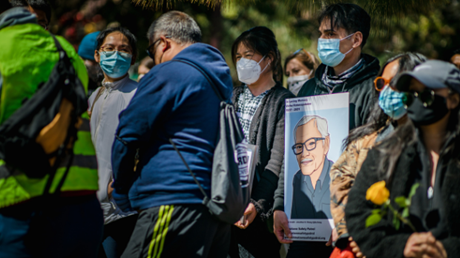Covid is a microcosm revealing our worst impulses and how we are governed by them.

In the summer of 1994, the coolest kid in school wrote seven words in my yearbook that in many ways capture the essence of the Asian American experience, then and today.
In dark blue ink and perfect cursive he wrote: “You are the coolest slanty I know.”
His words actually made me laugh out loud at first but saddened me an instant later because of their inherent tragedy. The real somatic element of the Asian American experience is not the ongoing incendiary slights, or even the projection of the model minority myth, but rather how we are systemically limited by our ethnicity.
I know my friend’s intention wasn’t to ostracize me or denigrate me, but when your ethnicity is continually used to diminish your accomplishments, it has a way of really getting into your head. Did my friend really think I was cool or was he just humoring me? As Asian Americans, we thus develop this chronic neurosis about even the most inconsequential versions of ourselves presented by others and the broader culture.
If America criminalizes black lives, it euphemizes Asian lives. If the black myth is that black lives are dangerous, angry, and desperate, then the Asian myth is that Asians are all harmless, subservient, and goody-two-shoes to the last. Perhaps this explains in part why bystanders are attacking Asian lives in broad daylight unprovoked while law enforcement at times uses excessive force with black lives.
This homogenization of Asian Americans by the dominant culture categorizes Asian lives as a prosaic uniformity, stripping us of our ingenuity and individuality as if we are all somehow made at the same remote factory in an unmarked location in Asia.
As the Harvard poet and abolitionist Henry David Thoreau once warned, there ...
from Christianity Today Magazine
via

.gif)

.gif)

.gif)
.gif)
